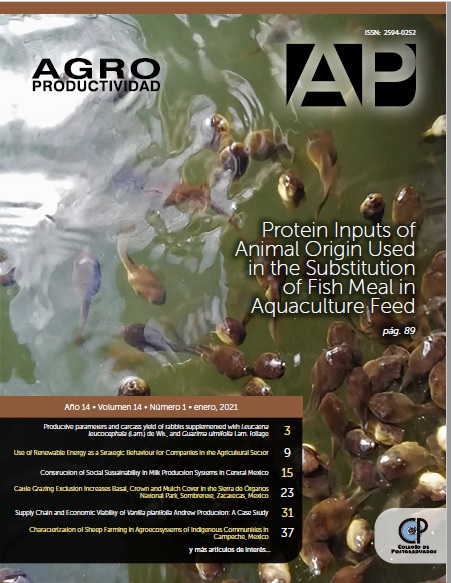Characterization of Sheep Farming in Agroecosystems of Indigenous Communities in Campeche, Mexico
##plugins.themes.bootstrap3.article.main##
Keywords
Resumen
Objective: To characterize sheep farming in agroecosystems of indigenous producers
who received financing from the National Commission for the Development of
Indigenous Peoples (Comisión Nacional para el Desarrollo de los Pueblos Indígenas,
CDI) in Campeche, Mexico.
Design/Methodology/Approach: A questionnaire was designed with socioeconomic
and technical characteristics and was applied to n=199 producers grouped into 27 sheep
farming units, distributed among seven municipalities of Campeche.
Results: Sheep farming in the evaluated communities is characterized by extensive
grazing, a low technology level, lack of infrastructure, and high participation of women of
productive age that are available to learn and implement innovations and technologies.
The production system is traditional and focused on repopulating flocks, which are a
means of savings and auto-consumption, without productive and reproductive records.
Producers are willing to implement strategies that contribute to improving their farming
units.
Study Limitations/Implications: Support policies, as well as capacity-building plans,
should distinguish between indigenous and traditional sheep farming.
Findings/Conclusions: The sheep farming units have inadequate infrastructure for flock
management, they demonstrate limited knowledge for their adequate management,
there are no control records, and they are classified as a traditional farming system.
Key words: Sheep, breeds, indigenous production units.

